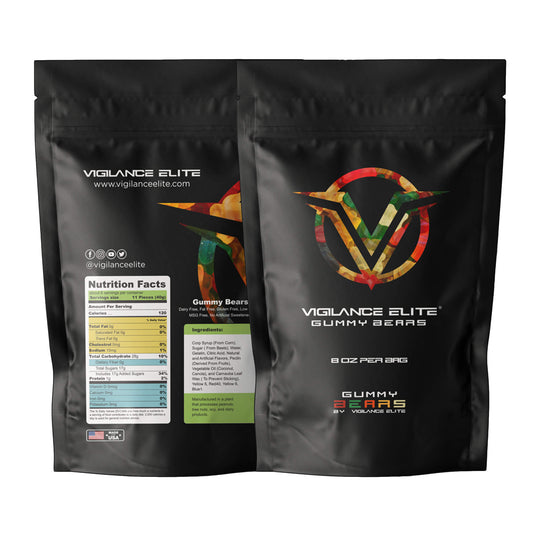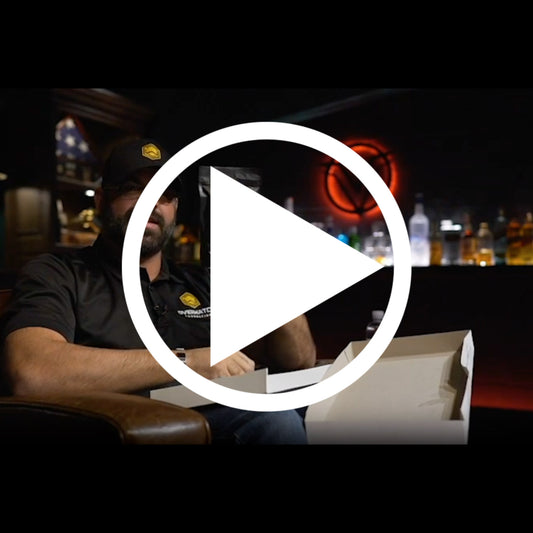Prepping Mindset
Due to current events, more people have begun prepping than in the past. More people prepping is a welcome change and it never hurts to be prepared. There is nothing more badass than being able to adequately provide for your family in a time of need. Except maybe being prepped enough to help others in addition to providing for your family. To me, that's what a real badass looks like in contrast to the latest and greatest "tactical" turds on social media.
The majority of the content I see these days focuses on shooting and defense. Shooting is an important skillset but, like the old Oregon Trail computer game, people tend to blow the budget on bullets and overlook vital, day to day necessities. Yes, I also spent all the money on bullets when playing that game as a kid loading up my wagon. We are grown up now though and the plan is to not die from dysentery.

In this post I outline seven things to consider before you start prepping. Hopefully this will help maximize your budget and help you better prepare.
1. Hunker Down or Bug Out
The first thing you will need to establish before prepping is your game plan. There is one question that comes to mind: Are you going to hunker down or bug out?
Your plan will likely be dictated by your location, living situation, community and obligations.
If you are staying put, do you have the resources and capability to sustain yourself and your family?
If you are bugging out, where are you going to go? Will you have the resources and capability to sustain yourself and your family once you get to your bugout location?
This is the big first decision when prepping. Choose wisely.
2. Urban or Rural
Location. Location. Location.

One of the first things you should take into account before you start prepping is where you live. For example, your needs will be drastically different if you live in an apartment in Los Angeles vs a farm in Tennessee.
Rural
In a rural situation, you will likely have more natural resources but require more advanced capabilities to navigate the landscape. I would venture to say that in most cases a rural environment is going to be a better place to stay put as opposed to bugging out.
- Are native to the rural environment?
- Do you have the resources to stay put?
- Do you have access to natural resources?
Urban
In an urban environment, a strong community might be your biggest advantage. In this case, fluid social skills will be a must if you are going to prep for staying in the city. Determining whether or not it is advantageous to stay put in an urban or bug out in this situation will be a key decision. If you decide to bug out, you need to know where you are going. You don't want to be expending resources on a theory if you can plan ahead.
- Have you been there before?
- When was the last time you went to your bug out location?
- What has happened to your route historically during times of crisis?
Answering this question will help you make practical decisions on establishing a plan and identifying natural resources. It will also help you narrow down your needs once your plan is in place.
3. Rent or Own
Do you rent or own your place?
There are pluses and minuses of both.
If you rent, your landlord sees your home as one of their assets and you may or may not be part of their plan. On the flip side, you could also be part of a close community that works together. It's all about your situation.
You can bail from your situation with less obligation and less responsibility. This can be an advantage, especially in a densely populated urban environment.
If you own the place, you obviously have more skin in the game when it comes to defending the homestead and also the responsibility of upkeep. You will also be more motivated to invest in more infrastructure based preps. Owning will likely offer you enhanced capabilities that renting does not. Yard space for a private garden for example.
4. Community
Your community is one of the greatest assets a prepper can have. Proximity to help is invaluable knowledge in times of crisis. Networking doesn't have a hard cost and being an upstanding member of your community goes a long way in the good times and the bad.
Make friends with your neighbors, try to remember names and faces. I know sometimes this isn't easy and not always possible but the effort is not wasted.
5. Know Your Dependents
Knowing your dependents will enhance your capabilities. Besides your immediate household, are you going to end up hosting for the rest of your family. Sometimes this might be thrown upon you and it is good to be ready to address that situation.
Lots of people like to sound tough but I don't think they would really turn away their in-laws or that other family member they might argue with at the holiday dinner table.

Know your dependents and identify your unknowns. This will help you plan more effectively.
The mark of a truly strong man is one who can care for others. Especially when the chips are down.
6. Get In Shape
I know. I know. This one is never fun.
But think: Am I in shape enough to move the supplies that I have prepped?
You will never regret working out and staying healthy. This will help you have the energy to push forward if you need to bug out.
Start small. Just adding light cardio to your daily routine will benefit you in the long run.
7. Eliminate Debts
Eliminating debts might not sound like the most obvious prep. Think of how you will feel not owing anything to anyone if SHTF. No one will be coming to collect from you and you will be in a better position to move forward.
That is true independence. True Freedom.


